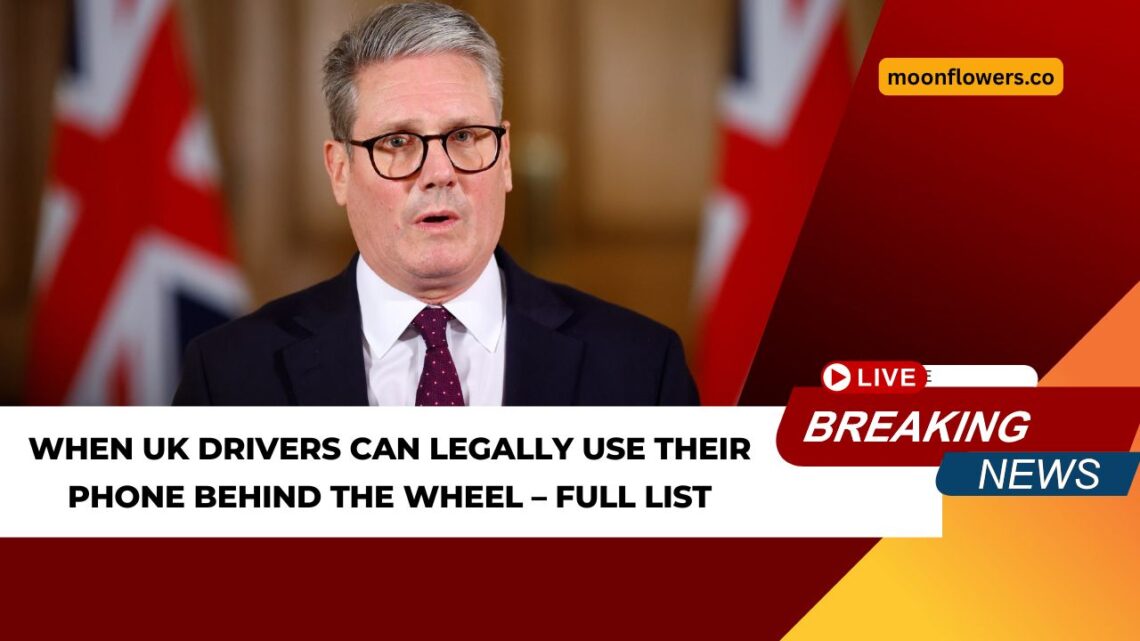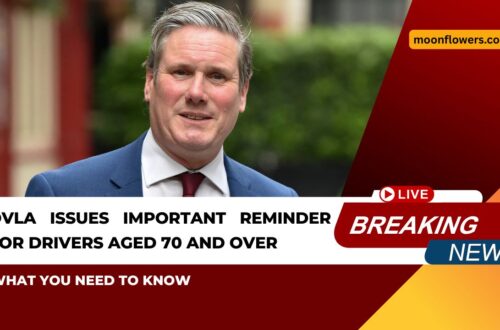Using a mobile phone behind the wheel is one of the leading causes of road accidents in the UK. Despite repeated warnings from authorities, many drivers still break the law without realising it.
In 2023, 15,300 drivers were prosecuted for using a handheld mobile device while driving. According to government data, 22 people lost their lives and 674 were injured in collisions where a driver using a mobile phone was a contributing factor.
A wider analysis from 2022 showed 4,188 injuries linked to “distractions in vehicles,” where phones played a significant role. These alarming figures underline why strict laws exist to ban handheld phone use while driving.
What the Law Says About Using Phones While Driving
The UK’s Highway Code clearly states that it is illegal to hold and use a phone, sat nav, tablet, or any handheld device that can send or receive data while:
- Driving a vehicle or riding a motorcycle
- Stopped at red lights or in traffic queues
- Supervising a learner driver
- Operating a vehicle with a start/stop engine, even when not moving
Importantly, this ban applies even if the device is offline or in flight mode.
Violators face a £200 fine and 6 penalty points, while new drivers can lose their licence entirely if they are caught within two years of passing their test.
Offenders can also be taken to court, where they may face a driving ban and a fine of up to £1,000 — or up to £2,500 for lorry or bus drivers.
Additionally, if you are not in full control of your vehicle while using a phone (even hands-free), you can be fined and given 3 more penalty points.
The Only Times You Can Legally Use Your Phone
Despite these strict rules, the Highway Code outlines four clear exceptions when it is legal to use your phone behind the wheel:
| Situation | Condition |
|---|---|
| Calling emergency services (999 or 112) | Only if it’s unsafe or impractical to stop |
| When safely parked | The vehicle must be stationary and safely parked off the road |
| Making contactless payment | Allowed only when the vehicle is stationary and not moving (e.g. drive-through) |
| Using phone to park remotely | The device may be used to control parking manoeuvres remotely |
These are the only legal exceptions. Any other use — including checking texts at a red light, changing songs, or adjusting sat nav while holding the device — is illegal.
Hands-Free Use Is Allowed, But Be Careful
Drivers are allowed to use devices through hands-free access, such as:
- Bluetooth headsets
- Voice command systems
- Dashboard mounts
- In-built car infotainment systems
However, the key condition is that the device must be secured and not held at any time during use.
Even with hands-free systems, drivers must remain in full control of their vehicle at all times. If the police believe you are distracted, you can still face penalties.
Why Drivers Must Stay Alert
Road safety experts warn that even brief distractions can have deadly consequences. Looking at a phone for just two seconds at 30 mph means driving blind for 27 metres.
With thousands of prosecutions and injuries every year, authorities are urging drivers to treat phone use behind the wheel as a serious safety hazard — not just a minor offence.
UK law makes it illegal to hold and use your phone while driving in nearly all situations, including at red lights or in traffic queues.
Only four exceptions allow phone use behind the wheel: calling emergency services, being parked safely, making contactless payments while stationary, or using the phone to park remotely.
Sticking to these rules is vital to avoid fines, penalty points, and devastating accidents. If in doubt, wait until you are safely parked before using your phone.
FAQs
Can I check a text at a red light?
No. Using your phone at red lights or in traffic queues is illegal, even if the vehicle is not moving.
Can I make a contactless payment while in my car?
Yes, but only if the car is stationary and not moving, such as at a drive-through.
Can I use my phone if it is hands-free?
Yes, hands-free use is allowed, but you must not hold the device or lose control of the vehicle.









